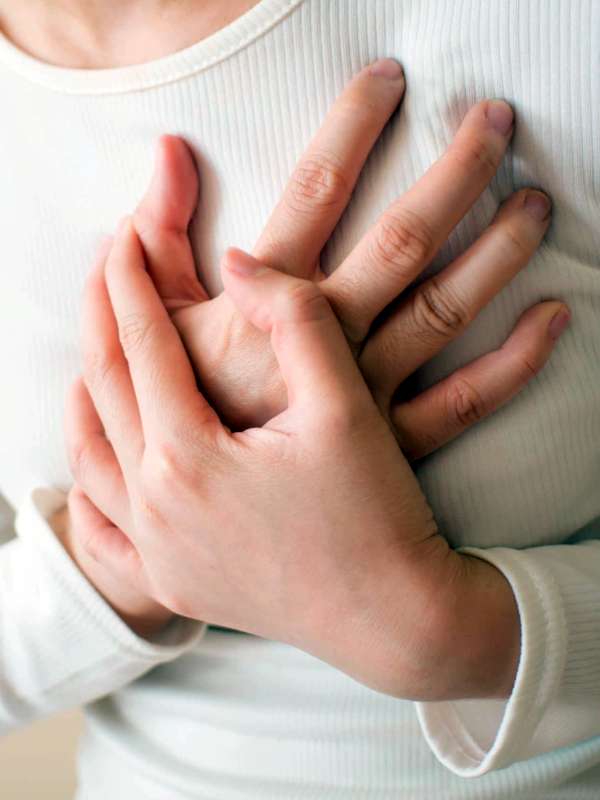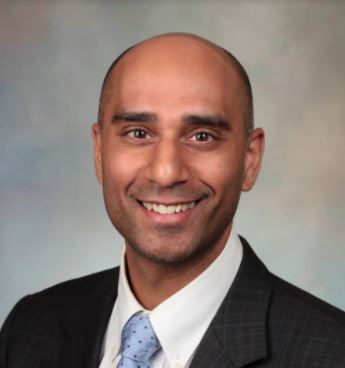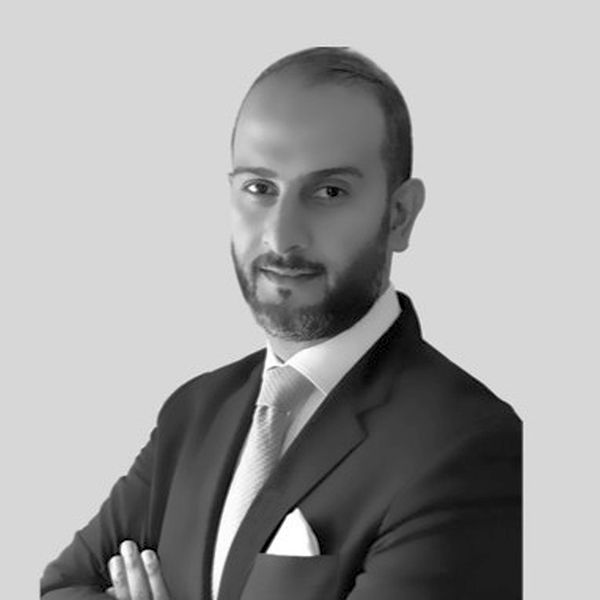Call 999 immediately if:
While you wait for medical attention, lie down comfortably and focus on deep, slow breathing-in through the nose, out through the mouth. |
High blood pressure is common, and under a doctor’s supervision, you can manage your blood pressure with regular monitoring, healthy habits, and sometimes with prescription medications.
But sometimes, blood pressure rises suddenly and becomes an issue that requires immediate medical attention. Here, you can learn about the difference between high blood pressure and hypertensive emergency, and how to lower your blood pressure quickly.
High Blood Pressure vs. Hypertensive Emergency
If you live with hypertension, there’s a good chance you’re taking steps to manage it. You may be incorporating healthy habits at home, and you may be working with a medical provider and taking prescribed medication. Chances are, you’re monitoring your blood pressure regularly, perhaps using a home blood pressure monitor, and you may understand your condition well enough to know which triggers cause your blood pressure to rise.
That’s the ideal scenario. But what happens if, for whatever reason, your blood pressure increases to dangerous levels very quickly? That’s what’s known as a hypertensive crisis, and it’s a good idea to be aware of what this can look like and what to do if it happens to you.
What is a hypertensive crisis?
A hypertensive crisis is defined as a blood pressure reading of 180/110 or higher and requires immediate medical attention.
A normal blood pressure reading is less than 120 systolic and less than 80 diastolic. A medical doctor can help you manage elevated to high blood pressure, and a hypertensive crisis requires swift action.
According to European Society of Cardiology (ESC) and the European Society of Hypertension guidelines, blood pressure classification is as below:
| Category | Systolic (mmHg) | & | Diastolic (mmHg) |
| Optimal | Less than 120 | and | Less than 80 |
| Normal | 120 – 129 | and/or | 80 – 84 |
| High normal | 130 – 139 | and/or | 85 – 89 |
| Grade 1 hypertension | 140 – 159 | and/or | 90 – 99 |
| Grade 2 hypertension | 160 – 179 | and/or | 100 – 109 |
| Grade 3 hypertension | Higher than 180 | and/or | Higher than 110 |
| Isolated systolic hypertension | Higher than 140 | and | Lower than 90 |
There are two types of hypertensive crises – hypertensive urgency and hypertensive emergency. Both require immediate medical attention.
Hypertensive urgency
If your blood pressure is 180/120 or higher but you’re not experiencing any other symptoms, such as blurred vision, increasing confusion, seizures, chest pain, shortness of breath, blood in urine, or edema (swelling), this is considered hypertensive urgency. Your doctor may adjust or add to your medications, but you can typically avoid a hospital stay.
Hypertensive emergency
If your blood pressure reading is 180/120 or higher and you have other symptoms like blurred vision, confusion, seizures, chest pain, shortness of breath, blood in urine, or edema (swelling), this is considered a hypertensive emergency and you should call 999.
Very high blood pressure can damage the blood vessels, meaning the heart will not be able to pump blood effectively, and organ damage may result. In a hypertensive emergency, symptoms indicate that damage may already be taking place.
What can cause a sudden increase in blood pressure?
Typically, a sudden increase in blood pressure happens when a patient fails to take prescribed blood pressure medication. Other causes of extremely high blood pressure include:
- Untreated high blood pressure
- Certain over-the-counter medicines
- Intense stress or anxiety
- Cigarette smoking
- Alcohol abuse
- Amphetamine use
- Thyroid disease
- Kidney failure
- Heart disease
- Stroke
- Trauma, such as burns, head injuries or surgery
- Certain diseases and conditions, such as kidney disease or diabetes
What to Do in a Hypertensive Emergency
If you or someone you’re with has a blood pressure reading of 180/120 or higher, call your doctor immediately.
If any of the symptoms associated with hypertensive emergency accompany the high blood pressure reading – blurred vision, increasing confusion, seizures, chest pain, shortness of breath, or swelling – call 999 straight away and describe the symptoms.
Be sure to mention any medications you currently take, including vitamins, supplements, over-the-counter medicines, or recreational drugs.
Join our community of hypertension fighters and stay informed with expert insights, tips and the latest updates on managing your blood pressure – Sign up for our newsletter now!
What to Do While You’re Waiting for Medical Attention
While waiting for help, it’s essential to take steps toward lowering blood pressure quickly. Here are a few tips that can help.
First: Avoid things that could raise blood pressure
- Worrying about your medical event could worsen matters. It helps to visualize yourself in a serene place while doing your breathing exercises.
- Avoid drinks containing caffeine, as these can increase blood pressure in the short term.
- Avoid sodium. No amount of sodium is safe during a hypertensive crisis.
- If anyone with you is panicking or in a heightened emotional state, you may ask them to step out to collect themselves so they do not add to your stress and affect your blood pressure.
- You may choose to calm yourself with a book or television, but make sure the content you’re watching is lighthearted, relaxing, and unlikely to excite you (positively or negatively).
- Avoid cold beverages, as these can constrict blood vessels and make your blood pressure rise as a result.
- If you are taking medications that tend to raise heart rate or blood pressure, such as amphetamines, ask your doctor if you can skip doses until your blood pressure is under control.
Tricks to lower blood pressure instantly
While there’s no universal way to lower blood pressure on command, there are techniques that could be effective for some people. Everyone is individual and there are a lot of factors in play, so what works for one person may not work for the next person. Still, it doesn’t hurt to try.
Resume blood pressure medication, if prescribed
If you’ve forgotten or skipped one or more doses of your blood pressure medication, resume your regimen as advised by your doctor. Your condition may resolve with this step alone. If you’re not sure if you missed a dose, call your doctor and ask him or her how to proceed with your medication.
Box breathing
People have taken to a technique called box breathing as a way to relax when feeling stressed. This technique could help slow a rapid heart rate, which could help bring your blood pressure down.
Here’s how to do it.
- Inhale for 4 seconds
- Hold for 4 seconds
- Exhale for 4 seconds
- Wait for four seconds
- Repeat
Repeat at least four cycles of box breathing and see if you notice a change in the way you feel.
Relaxation audio
One study found that listening to 12 minutes of an audio relaxation program reduced systolic blood pressure over 12 sessions in elderly patients. While this was a longer-term program for blood pressure reduction, there are calming effects to relaxation music and meditation tracks that you can feel.
You can opt for a guided relaxation or meditation track or switch on relaxation music while you do your box breathing.
Herbal remedies for high blood pressure
Herbal remedies may be a helpful approach to blood pressure concerns, although most take several weeks to take effect. Still, there are herbs that have been used for thousands of years to address blood pressure. You can read about herbs that may help maintain healthy blood pressure here.
Warm bath
A warm, relaxing bath may help calm your nerves and relax your muscles, which could help to lower blood pressure. Do not take a bath if you are alone, as you could lose consciousness in a hypertensive crisis.
High nitric oxide vegetables
Certain vegetables are high in nitric oxide which could help the blood vessels relax. This may potentially reduce force against veins, arteries, and capillaries. Dietary modifications also will take days to weeks to have an effect.
If you have leafy greens, beets, rhubarb, or carrots on hand, you may want to have them as a small snack or blend a quick smoothie and see if it helps. Check to make sure your other smoothie ingredients do not contain sodium. Do not prepare food yourself—if you’re in a hypertensive emergency, you should lie comfortably until help arrives.
Read more about vegetables that may help maintain a healthy blood pressure.
Keep yourself warm
If you feel chilled, your blood vessels may constrict which could raise your blood pressure even higher. Keep yourself warm to avoid any unnecessary blood pressure changes.
What to do: hypertensive urgency
If you or someone you’re with has a blood pressure reading of 180/120 or higher, but has no other symptoms, wait around five minutes and take the reading again. If it’s still high, seek medical advice urgently and try to stay calm. You should also be ready to share details of your medications and a log of blood pressure readings if you have one.
Your doctor may adjust your dose or add medications and can also advise on lifestyle changes that can help you avoid future spikes in blood pressure. Chances are, your doctor can work with you over the phone to help resolve your blood pressure crisis.
Final thoughts
Remember hypertensive emergency is rare, and when it does occur it’s usually caused by failing to take prescribed blood pressure medication.
If you’ve been diagnosed with high blood pressure, the best way to safeguard your health is through a healthy lifestyle, a balanced diet and prescribed medication. Another way you can take control of your health is by tracking your blood pressure and medication. In an emergency, having that information to hand could make all the difference.
Disclaimer: The information provided in this article is for general information purposes only and is not intended to be a substitute for professional medical advice. Always consult your physician or qualified healthcare provider for any questions related to a medical condition. The author and publisher are not liable for any harm or damage resulting from the use or misuse of the information in this article.
Sources
This 5-Minute Breathing Exercise Lowers Blood Pressure as Much as Drugs or Exercise. July 1, 2021:https://www.sciencealert.com/this-5-minute-breathing-exercise-lowers-blood-pressure-as-much-as-drugs-or-exercise
Effects of audio relaxation programs for blood pressure reduction in older adults. Dec 1, 2009: https://academic.oup.com/eurjcn/article/8/5/329/5929197
Nitric Oxide & Dietary Nitrate: Another Reason to Eat Your Vegetables. Dec 13, 2017: https://nutritionstudies.org/nitric-oxide-dietary-nitrate-another-reason-eat-vegetables/



